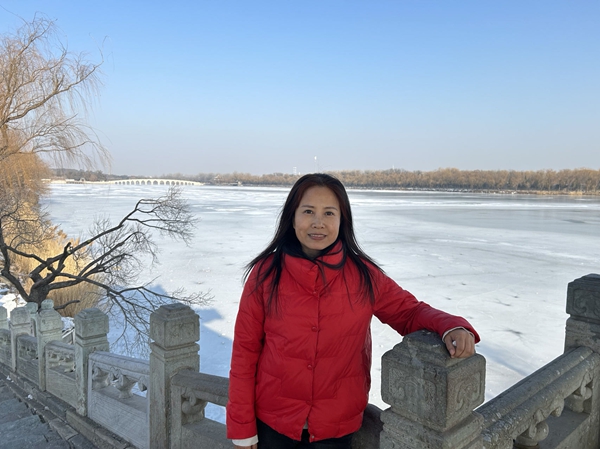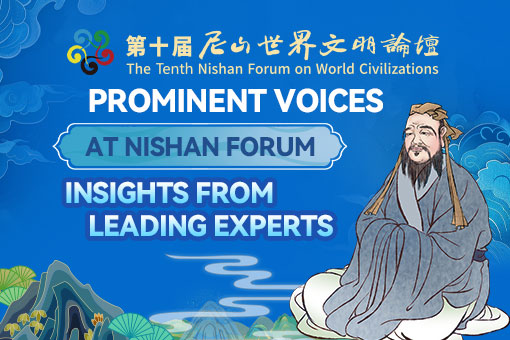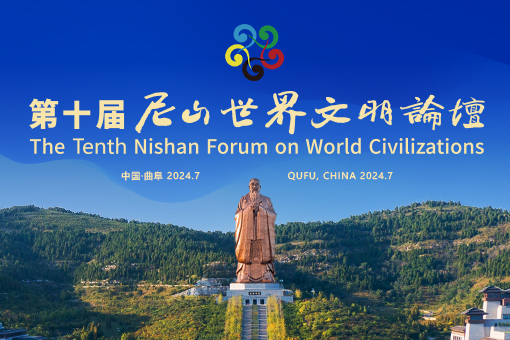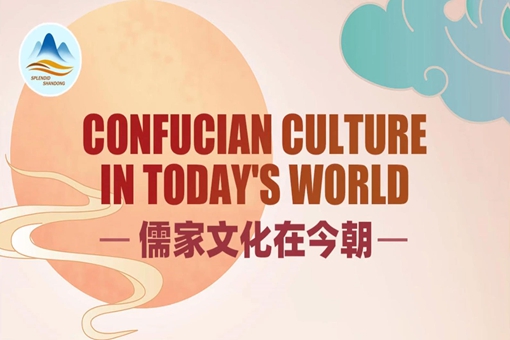Confucius culture highlights shared ethical wisdom among different cultures
(chinadaily.com.cn)| Updated : 2024-07-10
Print PrintEditor's Note: The 10th Nishan Forum on World Civilizations is being held in Qufu, Shandong province, the hometown of Confucius, from July 10 to 11, aiming to promote traditional Chinese culture and strengthen international cultural exchanges and cooperation. China Daily is inviting experts and scholars in related fields to share their insights into Confucianism, traditional Chinese culture and the dialogue among various civilizations.

Liu Lili, professor of the Department of Culture and History of the Central Party School (National Academy of Governance), believes that the digital age plays a significant role in spreading Confucian teachings through the internet and social media. [Photo provided to chinadaily.com.cn]
Q: What is your favorite saying from The Analects and how do you understand it?
A: One of my favorite sayings from The Analects is "己所不欲, 勿施于人", which means that you should treat others as you would like to be treated, and not do things to others that you would not want done to you. It is a principle of empathy and mutual respect, encouraging consideration and fairness in interpersonal interactions. It carries profound cultural significance and embodies several key aspects of Chinese traditional ethics and philosophy.
Firstly, this saying emphasizes moral self-discipline and consideration for others in interpersonal relationships. It is not only a personal moral guideline but also a foundation for social harmony. It asks individuals to think from the perspective of others and to avoid selfish actions that infringe upon the rights of others.
Secondly, Confucius viewed "ren" (benevolence) as the highest moral standard and "li" (ritual propriety) as the concrete actions to realize "ren". This saying embodies the concept of "ren" through the practice of "li". Thus, it serves as a guide for behavior that aligns with benevolence.
Thirdly, this saying has been widely quoted and has significantly influenced Chinese ethical and moral perspectives. Its core idea resonates with the Western "Golden Rule"— "Do unto others as you would have them do unto you" - highlighting a shared ethical wisdom among different cultures.
Lastly, in practical terms, this saying advocates for treating others with tolerance and understanding, thus avoiding conflicts. It encourages individuals to bear moral responsibility in society, thereby promoting social harmony and stability.
To conclude, "己所不欲, 勿施于人" is not only a famous quote by Confucius but also a profound piece of Chinese cultural wisdom. It reflects the ancient philosophers' deep thoughts on interpersonal relationships and social harmony.
Q: What opportunities does globalization present for the dissemination of Confucian teachings worldwide?
A: Globalization presents significant opportunities for the dissemination of Confucian teachings worldwide by increasing cross-cultural interaction and providing educational exchange programs. These interactions create platforms for introducing and discussing Confucian philosophy, making it accessible to diverse cultural backgrounds. International academic collaborations further integrate Confucian teachings into curricula through lectures, seminars, and conferences, allowing students and scholars to engage deeply with the material.
The digital age plays a significant role in spreading Confucian teachings through the internet and social media, where online courses and videos can reach a global audience. Translation and publication efforts make Confucian texts available in various languages, bridging cultural gaps and enhancing understanding. Additionally, cultural diplomacy, such as the activities of Confucius Institutes, promotes Chinese language and culture, including Confucian philosophy, on an international scale.
Confucian principles are also pertinent in worldwide ethical and philosophical debates, shaping practices in business and management, and fostering cross-cultural dialogues. These teachings address universal concerns like education, family values, and ethical leadership, resonating with global audiences. Furthermore, cultural products like films and literature depicting Confucian values can attract and foster appreciation among international viewers, enriching the global cultural and intellectual landscape.
Q: What do you think is the significance of holding the Nishan Forum on World Civilizations?
A: The Nishan Forum on World Civilizations holds great significance because it promotes cross-cultural dialogue, fostering mutual understanding and cooperation among diverse civilizations. Held in Confucius's birthplace, it emphasizes the relevance of Confucian values like harmony, respect, and ethical behavior in addressing modern issues. The forum encourages collaborative approaches to global challenges, such as the ethical development and deployment of AI technologies, by facilitating the exchange of ideas and best practices. This contributes to global peace, stability, and sustainable development, making the forum an important platform for fostering a harmonious and peaceful world.
Q: In what ways can Confucian principles guide the ethical development and deployment of AI technologies?
A: Confucian principles can significantly influence the ethical development and deployment of AI technologies by promoting a human-centric approach. This involves prioritizing user safety, privacy, and overall well-being, ensuring AI enhances human life rather than causing harm. The Confucian value of "ren" (benevolence) stresses the importance of creating AI that benefits humanity and aligns with ethical standards.
Ethical leadership and responsibility are also central to Confucianism, highlighting the need for transparency, accountability, and adherence to high ethical standards in AI development. Developers, companies, and policymakers must take responsibility for the impact of their technologies, ensuring AI systems are free from misuse and bias. Moreover, promoting social harmony and the common good, as advocated by Confucianism, requires designing AI technologies that foster social cohesion, reduce inequalities, and improve the quality of life for all.
Respect for cultural and moral values is another crucial aspect of Confucianism that can guide AI development. Developing AI systems that respect diverse cultural contexts and ethical standards is crucial to ensuring they uphold, rather than disrupt, the cultural and moral integrity of various societies. Moreover, Confucian values emphasizing continuous learning and improvement can guide the ongoing enhancement of AI systems to meet evolving ethical standards and societal demands. Lastly, Confucian principles of balance and moderation advocate for a measured approach to AI innovation, carefully balancing technological progress with ethical considerations.
Q: What are your expectations for this year's Nishan Forum on World Civilizations?
A: My expectations for this year's Nishan Forum on World Civilizations include fostering deeper cross-cultural dialogue among diverse participants, focusing on applying ancient wisdom, particularly Confucian values, to contemporary global challenges such as climate change and ethical dilemmas in AI technologies. I also expect the forum will catalyze new collaborative initiatives and partnerships, leading to cultural exchange, educational programs, and joint research efforts. I expect it will result in publications that share insights gleaned during the forum, thereby increasing the forum's influence on global discussions and advocating for the harmonization of technology with cultural preservation.

 Insights from the 10th Nishan Forum
Insights from the 10th Nishan Forum  The Tenth Nishan Forum on World Civilizations
The Tenth Nishan Forum on World Civilizations  Confucian culture thrives: Integrating its wisdom into modern value
Confucian culture thrives: Integrating its wisdom into modern value